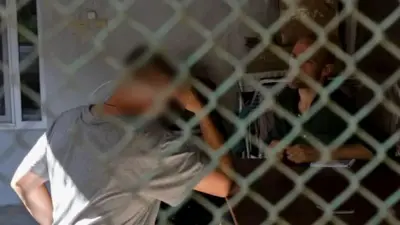We've updated our Privacy and Cookies Policy
We've made some important changes to our Privacy and Cookies Policy and we want you to know what this means for you and your data.
Madagascar's forests plundered for rare rosewood
Top Stories
- Author, Linda Pressly
- Role, ┤¾¤¾┤½├¢ Radio 4, Crossing Continents
Rosewood traders turn up in villages on the Masoala peninsula with cash and rice. They want local people to help them find precious rosewood trees in the dense forest, and then to haul the heavy logs out.
The illegal trade is irresistible to poor communities. Local people used to make money from tourists who came to see the lemurs - primates found only in Madagascar.
This was a national industry worth more than $400m (£256m). But last year's military-sponsored change of government has frightened off all but the most intrepid international travellers.
In March 2009, Marc Ravalomanana was forced into exile and replaced as president by Andry Rajoelina, a 36-year-old former mayor of the capital, Antananarivo.
Top Stories
The international community deemed this a coup and refused to recognise the new regime. Large donors like the World Bank, the European Union and the United States withdrew all but humanitarian aid from President Rajoelina's government.
Top Stories
This has had a dramatic impact as more than half of Madagascar's budget had come from international donors.
Illegal logging on the rise
Since the political crisis began, the forests of Madagascar have been plundered. In 2009, loggers took an estimated 100,000 rosewood and ebony trees from the national parks of north-east Madagascar.
Rosewood grows slowly, taking more than 100 years to reach maturity. Logging this rare species is unsustainable.
The exploitation of rosewood was banned in 2000 in Madagascar. Since then, government orders have occasionally allowed logging, but never at the levels seen recently. Poverty, corruption, an economy in free-fall and a lack of political will have all contributed to the trade.
In a village close to the Masoala National Park, a headman who did not want to be identified because logging is illegal, said that all the young men in the village make money from rosewood.
"Since the political crisis began life is very hard. Rice is expensive, and this village doesn't have enough to feed everyone all year. We are all making a big effort just to survive. So we have no choice - we have to work in the rosewood business."
He said the men who do the back-breaking work dragging the logs out of the forest are paid $2.50 a day. Merchants pay $50 (£32) for a log that is 3m long. That same timber will fetch more than $1,300 (£832) at the main Madagascan port of Toamasina.
"We make a tiny amount of money from this business. Everything is illegal. Everything is corrupt."
And this is a very lucrative business. It has been estimated that rosewood worth $220m (£141m) was exported from Madagascar last year.
Most of it was destined for China, where demand is fuelled by a growing middle-class with a desire for imperial-style furniture. In June this year, alone, 79 containers of rosewood were shipped out - cargo worth some $16m (£10.2m).
Environmental damage
Loggers fell many other trees to ease access to the rosewood, creating a real threat to Madagascar's unique wildlife.
"The loggers go a long way into the forest to find the rosewood," says Armand Marozafy, who has been guiding in Masoala for more than 15 years. "They only carry rice with them. But that's not enough to eat, so they make traps for the lemurs. Sometimes they even shoot them."
The Director of the Masoala National Park, Haja Salava, is shocked by what is happening.
"There was always rosewood logging in the park, but since 2009 it's the worst thing I've ever seen. The only thing we can do is identify where it's happening and inform the forestry service or the police. We need a sustainable solution, and a political one."
The administration of Andry Rajoelina has recently become more proactive, and officials have raided properties where rosewood logs were hidden.
"Logging licences were issued before the transitional government came to power last year," says Serge Rainaivo, a close political ally of the president and a minister in the transitional government.
"Protecting the environment is one of our top priorities. We are tackling this problem - it's prohibited to log and export rosewood."
The port of Maraonsetra is a hub for the transit of illicit rosewood. And at a time of severe economic hardship in Madagascar, it has provided a business bonanza for many of the local cargo boats.
Armand Marozafy has witnessed the shipments coming and going: "Normally I see around two big boats a week. That's at least 100 tonnes of rosewood that has been lost from the forest."
Top Stories
More to explore
Most read
Content is not available








